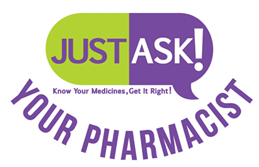HealthXchange will NEVER ask you to transfer money over a call. If in doubt, call the 24/7 ScamShield helpline at 1799, or visit the ScamShield website at www.scamshield.gov.sg.
5 Self-Care Tips for Narrow Therapeutic Index (TI) Medication: Warfarin, Immunosuppressants and More

Show your medication list to healthcare providers before taking Therapeutic Index (TI) medications.
Therapeutic index (TI) is also commonly referred as a therapeutic window, safety window or therapeutic ratio. This is the dose range where the efficacy of medication is optimised while side-effects are minimised. The figure below visually demonstrates the concept.
 Therapeutic index can vary from medication to medication. Some common narrow therapeutic index (TI) medications are seen in Table 1. These medications usually require close monitoring by healthcare professionals. Blood tests may be needed to check that the dosage is suitable, as the clinical response can vary widely from patient to patient.
Therapeutic index can vary from medication to medication. Some common narrow therapeutic index (TI) medications are seen in Table 1. These medications usually require close monitoring by healthcare professionals. Blood tests may be needed to check that the dosage is suitable, as the clinical response can vary widely from patient to patient.
| Table 1. Common Narrow Therapeutic Index (TI) Medications |
|---|
|
5 TIPS WHEN TAKING THERAPEUTIC INDEX (TI) MEDICINE
If you are taking any of the therapeutic index (TI) medicines listed above, here are some tips to ensure your safety:
HAVE A MEDICATION LIST.
Know your medications well, especially which ones have a narrow therapeutic index. Be educated on the side-effects to look out for, and know when to see your doctor.
CHECK FOR POTENTIAL DRUG INTERACTIONS.
Show your medication list to all your healthcare providers, especially if you are seeing several different doctors. Be aware of possible interactions of new medications with your existing treatment. This includes over-the-counter preparations and herbal supplements.
ADHERE TO YOUR MEDICATION REGIME.
Avoid missing doses, and do not just adjust your dosage on your own. Remember that narrow therapeutic index (TI) drugs have a fine balance between toxicity and efficacy.
DON’T SKIP YOUR APPOINTMENTS.
Always come for your blood tests and doctors’ appointments. Your body is always changing and it is important to come for regular checks at least once a year, to be sure that the dosage previously prescribed for you is still suitable.
DO NOT “SHARE” YOUR MEDICATIONS.
What is suitable for you may not be suitable for others. The selection of medication and doses is unique to your medical conditions and health status.
When in doubt about your medications, discuss your concerns with your doctor or pharmacist.

Ref: O17
Contributed by
Related Articles
Public Events
Get the Health Buddy App
© 2025 SingHealth Group. All Rights Reserved.

















 Get it on Google Play
Get it on Google Play